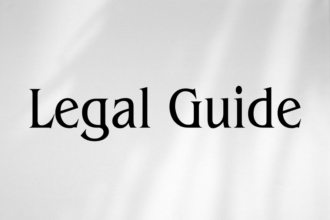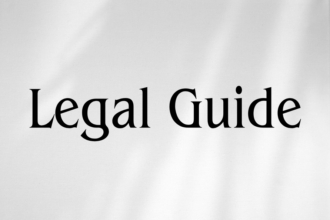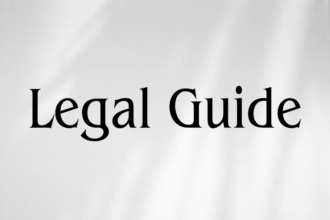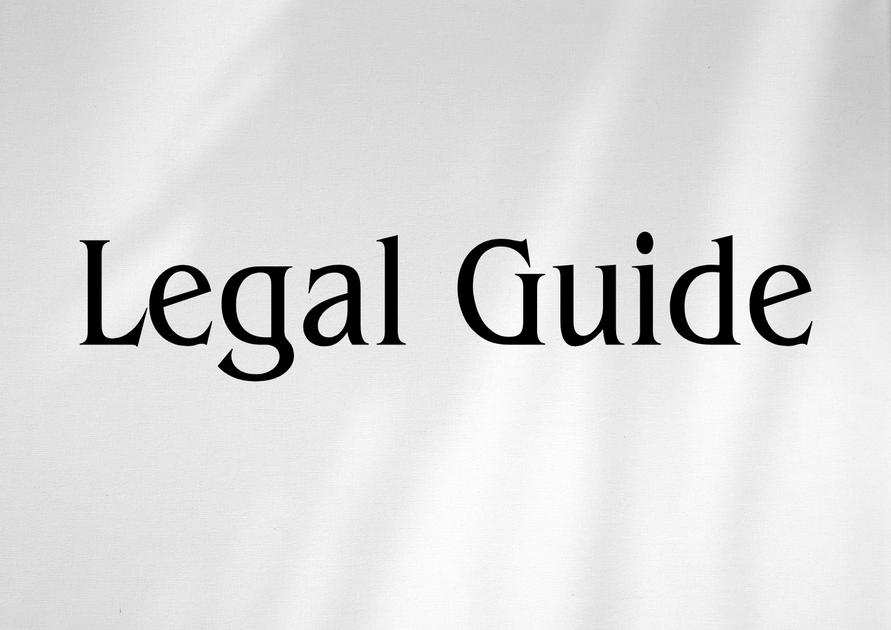Introduction
In today’s rapidly evolving economic landscape, business disputes are an inevitable aspect of commercial life. For companies operating within the United Arab Emirates (UAE), understanding the legal avenues for resolving such disputes is crucial—not only to protect their interests but also to capitalize on the UAE’s pro-business legal framework. Recent regulatory updates, particularly the introduction of Federal Decree-Law No. 42 of 2022 (UAE Civil Procedure Code) and amendments enforced into 2025, have further refined the mechanisms, timelines, and expectations around business dispute resolution. This article is written as a specialist briefing for executives, legal officers, in-house counsel, HR managers, and external advisors seeking expert guidance on navigating business disputes in the UAE with confidence and compliance.
Readers will gain deep insights into the laws governing business disputes, practical remedies, procedural nuances, and compliance strategies, ensuring their organizations are robustly prepared for both everyday and extraordinary business challenges in the UAE.
Table of Contents
- Overview of Business Disputes Under UAE Law
- UAE Legal Framework for Business Dispute Resolution
- Litigation in UAE Courts: Procedures and Remedies
- Alternative Dispute Resolution: Arbitration and Mediation
- Managing Contractual Business Disputes
- Employment-Related Disputes: HR and Legal Response
- Risks of Non-Compliance and Best Practice Compliance Strategies
- Case Studies and Hypothetical Scenarios
- Conclusion: Preparing for the Future of UAE Dispute Resolution
Overview of Business Disputes Under UAE Law
Commercial disputes in the UAE may arise from contractual disagreements, non-payment of dues, partnership breakdowns, misrepresentation, employment claims, intellectual property (IP) infringements, or violations of regulations. The UAE’s legal regime distinguishes between civil law, commercial law, labor law, and specialized sectoral regulations. Business entities must carefully consider the relevant legal pathways depending on the dispute’s nature, contract terms, and jurisdictional considerations (onshore vs. free zone, or DIFC/ADGM vs. local courts).
Key Legal Sources
The principal statutes governing business disputes in the UAE include:
- Federal Decree-Law No. 42 of 2022 (Civil Procedure Law)
- Federal Law No. 5 of 1985 (Civil Transactions Law)
- Federal Law No. 18 of 1993 (Commercial Transactions Law)
- Federal Decree-Law No. 33 of 2021 (Labour Law, as amended)
- Special regulations for free zones and financial centres (e.g., DIFC, ADGM)
In addition, Cabinet Resolutions, Ministerial Circulars, and judicial decisions provide ongoing refinements, with significant updates through 2024 and 2025.
UAE Legal Framework for Business Dispute Resolution
Jurisdictional Structures: Federal, Local, and Free Zone Courts
The UAE operates a multi-jurisdictional court system:
- Onshore courts (federal/local courts) hear most disputes under UAE law.
- Free zone courts (such as DIFC or ADGM) offer alternative jurisdictions, especially where parties have contractually stipulated.
An effective dispute management strategy begins with understanding where and how a dispute may be heard—assessing contract forum clauses, governing law provisions, and whether arbitration has been elected by the parties.
Key Regulatory Updates: 2022–2025 Enhancements
The introduction of Federal Decree-Law No. 42 of 2022 modernizes the UAE’s Civil Procedure regime, with particular focus on:
- Expediting court proceedings and promoting efficiency
- Strengthening interim remedy mechanisms
- Improved recognition and enforcement of arbitral awards
- Clarified timelines for appeals and limitation periods
| Aspect | Pre-2022 Law | Federal Decree-Law No. 42 of 2022/Updates |
|---|---|---|
| Case Management | Limited case management | Mandatory case management by courts and stricter timelines |
| Interim Measures | Discretionary, rare grants | Wider availability and clear criteria for interim relief |
| Arbitral Award Enforcement | Prolonged and inconsistent process | Fast-track enforcement, reduced court interference |
| Appeal Deadlines | Varied, occasionally uncertain | Strict and clarified deadlines for appeals |
Litigation in UAE Courts: Procedures and Remedies
Court Process at a Glance
The litigation cycle typically involves:
- Pleadings submission
- Mediation (mandatory in certain cases)
- Hearings (primary and appellate)
- Judgment and enforcement
Recent procedural rules have introduced e-filing systems, video hearings (in select circumstances), and tighter controls on dilatory tactics. For consultancies, it is critical to advise clients on timely document gathering and proactive evidence management.
Interim Relief and Injunctions
One of the most significant enhancements is the improved access to interim remedies. Under the updated law, parties can now obtain:
- Freezing orders
- Asset preservation directives
- Orders for specific performance
Practical Insight: Act quickly—delay in seeking interim relief can undermine the success of litigation, especially in complex commercial cases involving potential asset dissipation.
Enforcement of Judgments
Enforcement is streamlined under the 2022 and subsequent regulations, especially for execution against bank accounts, company shares, and real estate. However, for foreign judgments or arbitral awards, parties must follow the procedures established under Cabinet Resolution No. 57 of 2018 (as amended), ensuring compliance with reciprocity and public policy considerations.
Legal Remedies
- Monetary Damages
- Rescission or Termination of Contract
- Specific Performance
- Declaratory Relief
Choosing the optimal remedy requires expert evaluation of the facts and contract terms.
Practical Example: Commercial Supply Dispute
Company A, an importer, withholds payment from Company B citing delayed delivery. Company B files a commercial case in Dubai Courts, seeking payment as well as damages for breach. Under the Civil Procedure Law, Company B requests interim measures to freeze the disputed amount in Company A’s bank accounts.
Consultancy Insight: Proper contract drafting, including jurisdiction and remedy clauses, often dictates the efficiency and outcome of enforcement processes in the UAE.
Alternative Dispute Resolution: Arbitration and Mediation
Arbitration Framework
The UAE is recognized as a pro-arbitration jurisdiction, especially following the enactment of Federal Law No. 6 of 2018 (UAE Arbitration Law) and subsequent updates. Major arbitral institutions include the Dubai International Arbitration Centre (DIAC), Abu Dhabi Commercial Conciliation and Arbitration Centre (ADCCAC), and DIFC-LCIA (now part of DIAC).
- Arbitral proceedings are confidential, flexible, and allow party autonomy.
- Arbitral awards are recognized and enforced with minimal court interference post-2022 updates.
Mediation and Conciliation
Mediation is increasingly being adopted, particularly for employment, tenancy, and commercial disputes. The UAE’s Ministry of Justice sponsors various conciliation committees which handle small-value and amicable dispute settlements.
Practical Consideration: Opting for mediation or arbitration may significantly reduce costs, time, and reputational risk compared to full-scale litigation.
| Feature | Litigation | Arbitration |
|---|---|---|
| Confidentiality | Public, except for family/business secrets | Typically confidential |
| Duration | 6–24 months | 6–12 months |
| Appeal | Possible appeal tiers | Limited grounds to set aside |
| Specialization | Generalist judges | Parties may appoint specialists |
Case Study: Shareholder Deadlock
A UAE LLC faces a deadlock between two major shareholders. The Shareholders’ Agreement stipulated DIAC arbitration. Arbitration commences, with interim relief granted to protect company assets until a final resolution. The DIAC award is recognized and enforced in the Dubai Courts within four months.
Managing Contractual Business Disputes
Contractual Protections: Drafting to Prevent and Resolve Disputes
Effective dispute management begins at the contract drafting stage. Consider including:
- Clear dispute resolution clauses (specifying law, jurisdiction, and ADR methods)
- Liquidated damages or penalty clauses—compliant with Federal Law No. 5 of 1985
- Force majeure and hardship provisions
- Express remedies for non-performance
Recent Developments: Penalty Clauses & Unforeseeable Circumstances (UAE Law 2025 Updates)
Amendments to the Civil Transactions Law clarify the enforceability of penalty clauses. The courts may now moderate penalty payments where they are “grossly excessive”—a principle aimed at curbing unjust enrichment. Furthermore, contracts must explicitly cater for unforeseen events post-pandemic, as courts look more favorably on well-drafted force majeure and hardship regimes.
Compliance Checklist: Business Disputes
| Step | Compliance Point | Best Practice |
|---|---|---|
| 1 | Governing Law | Specify clearly (UAE law or otherwise) |
| 2 | Jurisdiction | Include exclusive court or arbitration forum |
| 3 | ADR provisions | Mediation/arbitration as prerequisites |
| 4 | Remedies & Penalties | Define, in compliance with law |
| 5 | Force Majeure | Comprehensive and updated clause |
| 6 | Notice Clauses | Clear communication procedures |
Hypothetical Scenario
Company C, headquartered in Abu Dhabi, faces supply chain disruption due to port closures. Its UAE law-governed contract lacks a detailed force majeure clause. When a dispute arises, Company C is at a disadvantage. Had the contract contained a comprehensive force majeure provision, it could have mitigated losses and legal exposure.
Employment-Related Disputes: HR and Legal Response
Current Framework: Federal Decree-Law No. 33 of 2021
The Labour Law and its Ministerial Implementing Regulations (as updated to 2025) set out mandatory procedures for employment disputes, such as:
- Mandatory complaint submission to the Ministry of Human Resources and Emiratisation (MOHRE) prior to litigation (Federal Decree-Law No. 33 of 2021, Article 54)
- 30-day conciliation period, after which parties may pursue formal legal action
- Protection for whistleblowers and improved mechanisms for end-of-service settlements
Recent Amendments: Electronic Dispute Resolution & Settlement
Key innovations include:
- Online complaint filing and virtual dispute resolution sessions through MOHRE
- Introduction of expedited employment settlement committees for disputes below AED 50,000
- Recognition of joint liability for employers and managers in cases of wage abuses
Practical Guidance
Employers must ensure compliance with UAE Labour Law, maintain up-to-date employment contracts, and proactively manage HR issues. Failure to follow procedural steps (e.g., timely wage payment, obtaining end-of-service clearance) can result in severe financial penalties and reputational risk.
| Step | Key Requirement | Timeline |
|---|---|---|
| 1 | Submit complaint to MOHRE | Within 30 days of dispute |
| 2 | MOHRE settlement/conciliation | Up to 30 days |
| 3 | Referral to court (if unresolved) | Post-conciliation |
| 4 | Final adjudication | Varies by complexity |
Risks of Non-Compliance and Best Practice Compliance Strategies
Key Risks
- Adverse judgments and enforcement of strict penalties
- Asset freezes or travel bans on company representatives
- Possible criminal liability (e.g., bounced cheque cases, fraud)
- Reputational harm and blacklisting by government authorities
Best Practice Compliance Strategies
- Regular legal audits of contract templates and HR processes
- Immediate legal intervention upon dispute threat
- Preservation of documentation and evidence trails
- Utilization of ADR mechanisms before commencing litigation
- Comprehensive staff training on regulatory compliance
Process Diagram Suggestion
Recommend inclusion of a process flow diagram: “Steps for Handling a Business Dispute in the UAE: Pre-litigation, ADR, Litigation, Enforcement.” Such visuals can support executive understanding of complex procedural timelines.
Case Studies and Hypothetical Scenarios
Case Study 1: Franchise Dispute in Dubai
A franchisee in Dubai terminated its agreement prematurely after the franchisor introduced a rival outlet nearby. On review, Dubai Courts discovered the contract lacked a clear non-compete clause. The absence of precise dispute resolution terms led to prolonged litigation, resulting in partial damages. Key Lesson: Detailed and enforceable contract clauses are indispensable in protecting parties’ interests.
Case Study 2: Rapid Resolution through Mediation
An Abu Dhabi manufacturer faced a payment default from a client. Instead of pursuing litigation, the matter was resolved through MOHRE-sponsored mediation, resulting in a binding settlement in two weeks.
Recommendation: Early engagement with authorized mediation centers can yield faster and cost-effective outcomes compared to formal litigation.
Case Study 3: IP Infringement and Expedited Relief
A software company discovered unauthorized use of its product in Sharjah. It secured an interim freezing order under the new Civil Procedure Law, followed by an award of damages.
Insight: Rapid legal intervention prevents dissipation of assets or evidence in high-stakes disputes.
Conclusion: Preparing for the Future of UAE Dispute Resolution
The UAE’s forward-oriented legal reforms are creating a landscape where business disputes can be resolved more efficiently, predictably, and fairly than ever before. Updates to the Civil Procedure Law, ongoing modernization of employment dispute mechanisms, and robust support for arbitration and mediation are strengthening legal certainty for businesses yet raising expectations for diligent compliance and early risk management.
Key Takeaways:
- Proactive Preparation: Contractual diligence and clear internal policies are the first defense against hardship in disputes.
- Embrace ADR: Arbitration and mediation have never been more accessible or recognized by UAE courts, offering speed and confidentiality.
- Compliance is Non-Negotiable: Ongoing legal audits and staff training are essential to avoid regulatory penalties and reputational risk.
- Stay Informed: Regularly monitor legal updates via the UAE Ministry of Justice and related official channels.
The future of business in the UAE belongs to organizations that transform legal compliance into a strategic advantage. Engaging with specialized legal consultants and adopting practical, up-to-date approaches will not only reduce legal exposure but also elevate competitive positioning in the dynamic UAE market.




